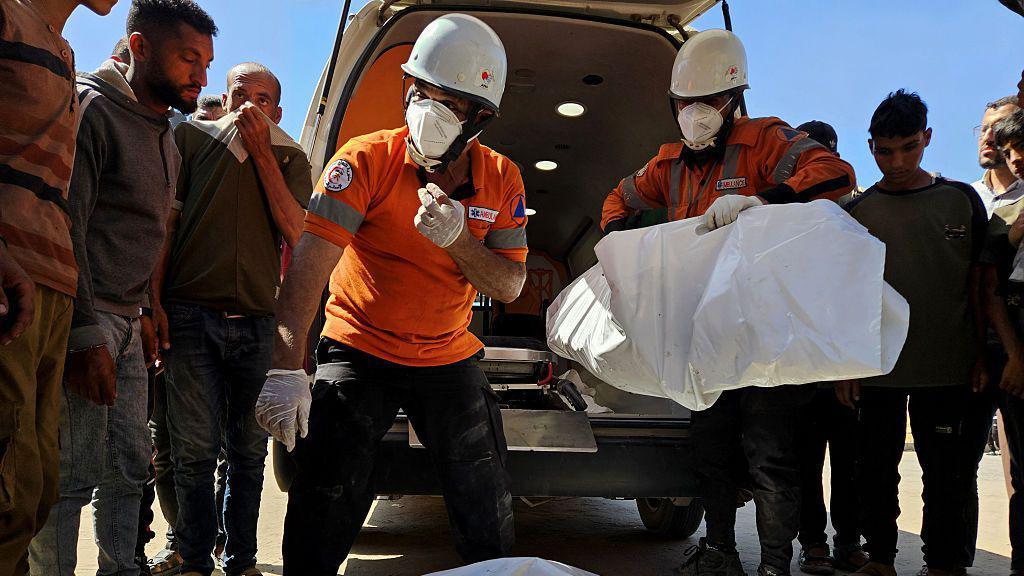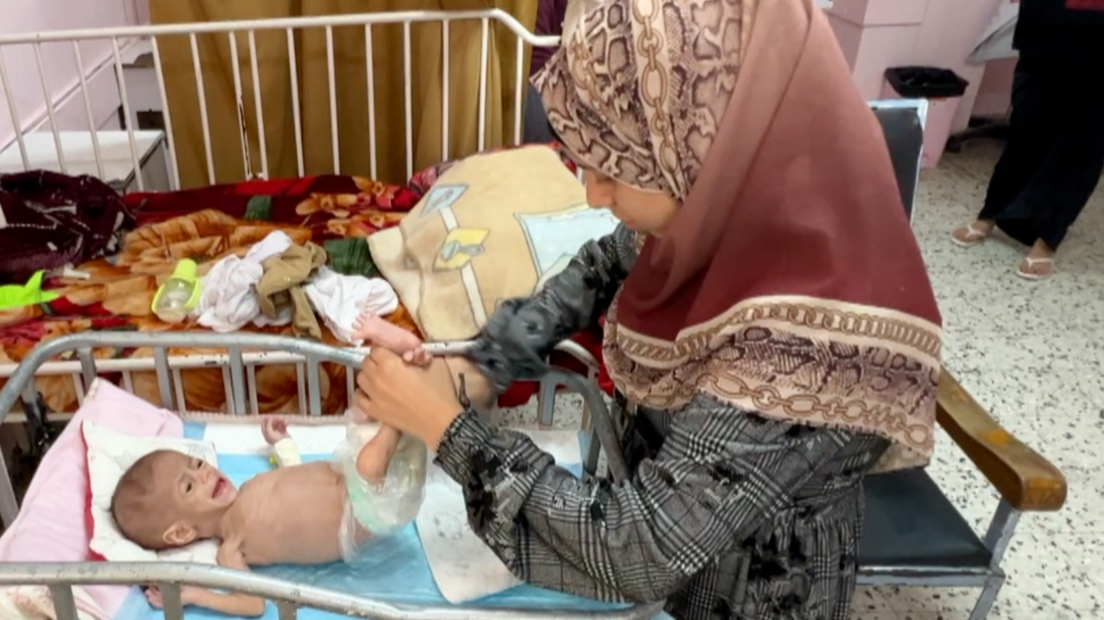'Situation is dire' - BBC returns to Gaza baby left hungry by Israeli blockade
Warning: Upsetting content
- Published
There is no excitement as the camera passes. The children barely glance. What can surprise a child who lives among the dead, the dying, the waiting to die? Hunger has worn them down.
They wait in queues for scant rations or for none at all. They have grown used to my colleague and his camera, filming for the BBC. He witnesses their hunger, their dying, and to the gentle wrapping of their bodies - or fragments of their bodies - in white shrouds upon which their names, if known, are written.
For 19 months of war, and now under a renewed Israeli offensive, this local cameraman - who I do not name, for his safety - has listened to the anguished cries of the survivors in hospital courtyards.
His physical distance is respectful, but they are on his mind, day and night. He is one of them, trapped in the same claustrophobic hell.
This morning he is setting out to find Siwar Ashour, a five-month-old girl whose emaciated frame and exhausted cry at Nasser hospital in Khan Younis affected him so much, when he was filming there earlier this month, that he wrote to tell me something had broken inside him.
She weighed just over 2kg (4lb 6oz). A baby girl of five months should be about 6kg or over.
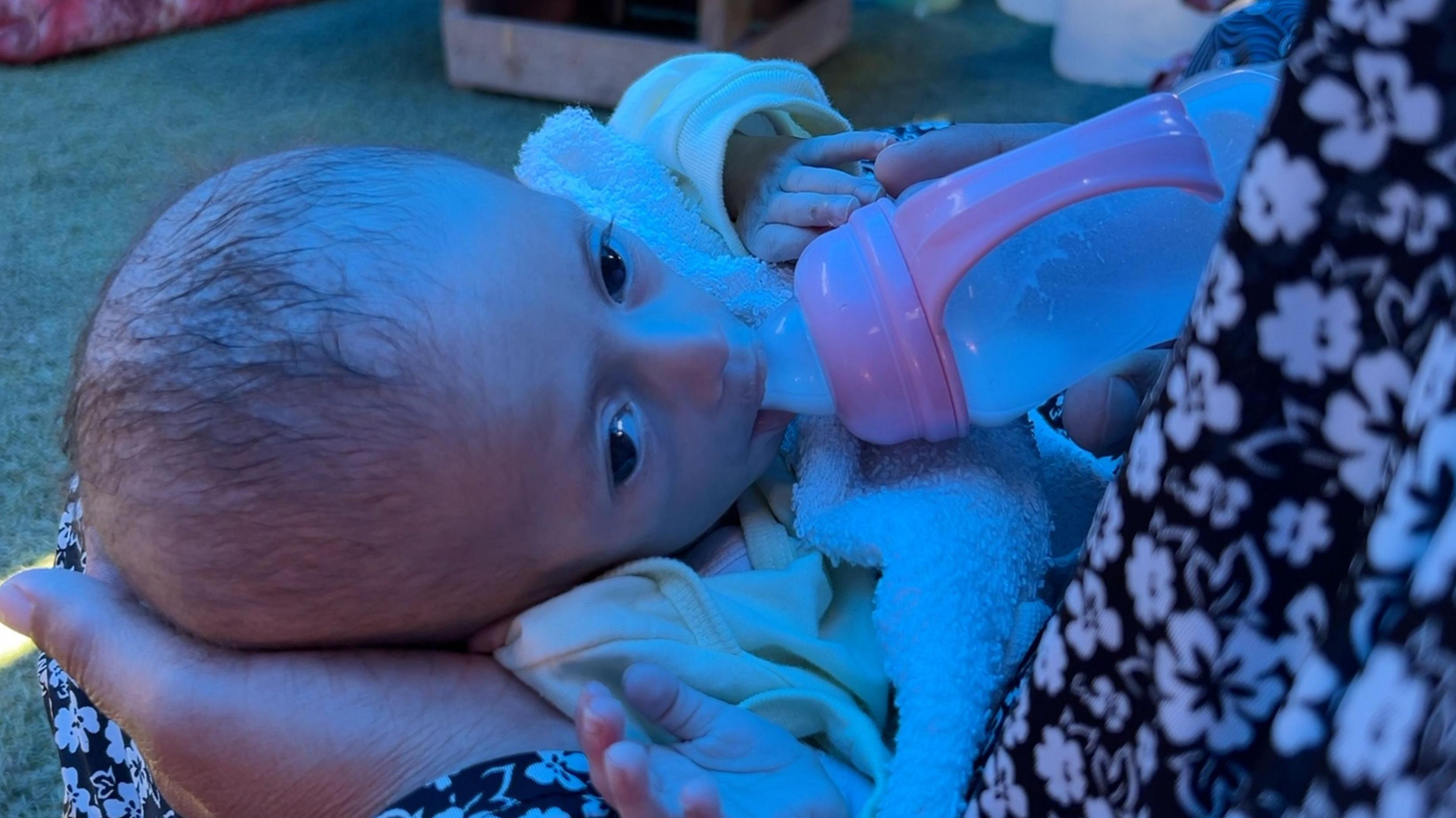
Baby Siwar needs a special milk formula because of an allergic reaction
Siwar has since been discharged and is now at home, my colleague has heard. That is what brings him to the street of pulverised houses and makeshift shelters of canvas and corrugated iron.
He conducts his search in difficult circumstances. A few days ago I messaged to ask how he was doing. "I am not okay," he replied. "Just a short while ago, the Israeli army announced the evacuation of most areas of Khan Younis… We don't know what to do - there is no safe place to go.
"Al-Mawasi is extremely overcrowded with displaced people. We are lost and have no idea what the right decision is at this moment."
He finds a one-bedroom shack, the entrance formed of a floral patterned, grey and black curtain. Inside there are three mattresses, part of a chest of drawers, and a mirror which reflects sunlight across the floor in front of Siwar, her mother Najwa and her grandmother, Reem.
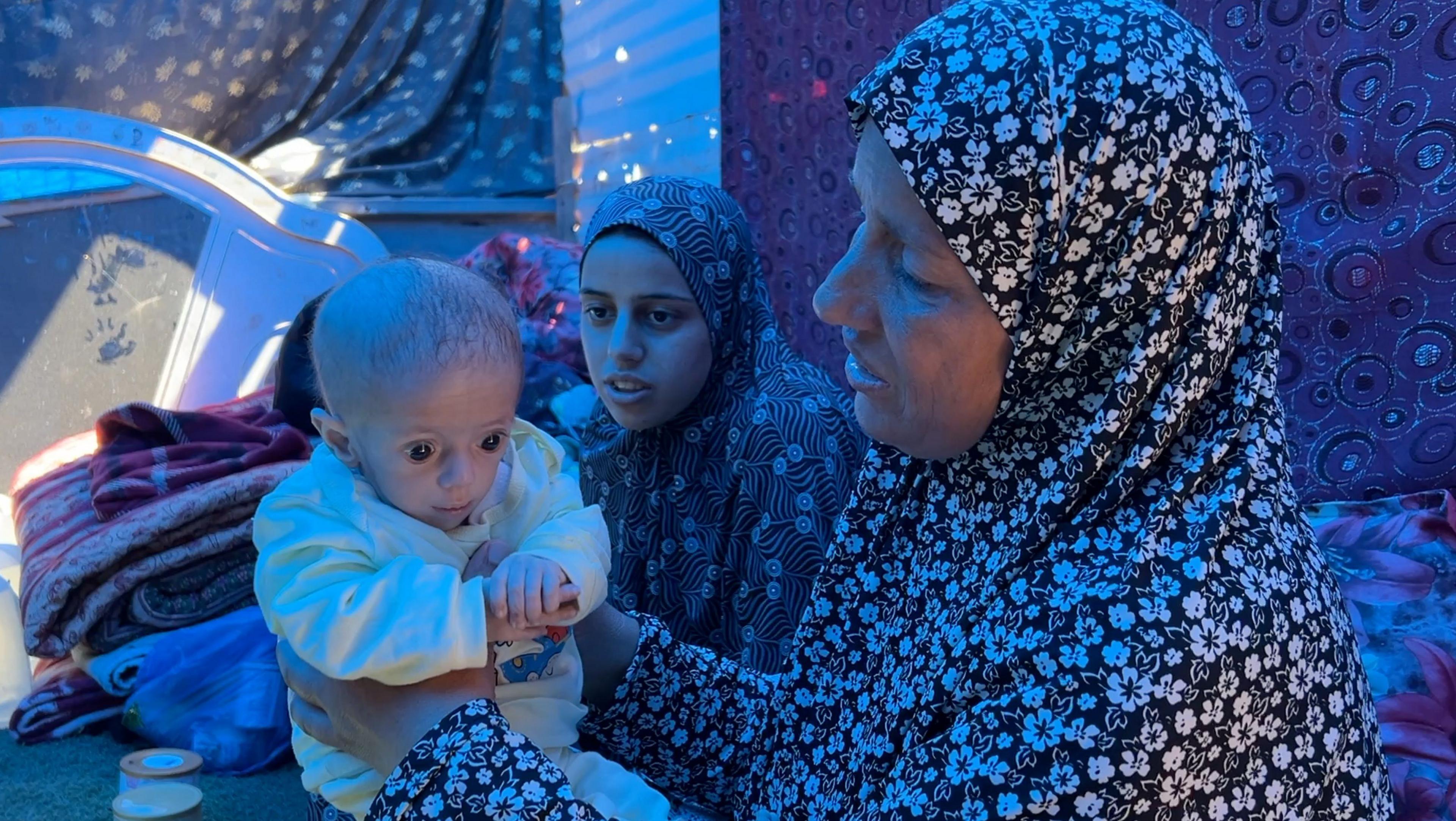
Siwar's mother Najwa and grandmother Reem are all struggling with few supplies
Siwar is quiet, held secure by the protective presence of the two women. The baby cannot absorb regular milk formula because of a severe allergic reaction. Under the conditions of war and an Israeli blockade on aid arrivals, there is a severe shortage of the formula she needs.
Najwa, 23, explains that her condition stabilised when she was in Nasser hospital, so doctors discharged her with a can of baby formula several days ago.
Now at home, she says the baby's weight has started to slip again. "The doctors told me that Siwar improved and is better than before, but I think that she is still skinny and hasn't improved much. They found her only one can of milk, and it [has] started running out."
Flies dance in front of Siwar's face. "The situation is very dire," says Najwa, "the insects come at her, I have to cover her with a scarf so nothing touches her".
Siwar has lived with the sound of war since last November when she was born. The artillery, the rockets, falling bombs - distant and near. The gunfire, the blades of Israeli drones whirring overhead. Najwa explains: "She understands these things. The sound of the tanks, warplanes, and rockets are so loud and they are close to us. When Siwar hears these sounds, she gets startled and cries. If she is sleeping, she wakes up startled and crying."
Doctors in Gaza say many young mothers report being unable to breastfeed their babies due to lack of nutrition. The pressing problem is food and clean water.
Najwa was malnourished herself when Siwar was born. She and her mother Reem still find it difficult to get anything to eat themselves. It is the struggle of every waking hour. "In our case, we can't provide milk or diapers because of the prices and the border closure."
On 22 May, Israeli military body Cogat said there was no food shortage in Gaza. It said "significant quantities of baby food and flour for bakeries" had been brought into the enclave in recent days.
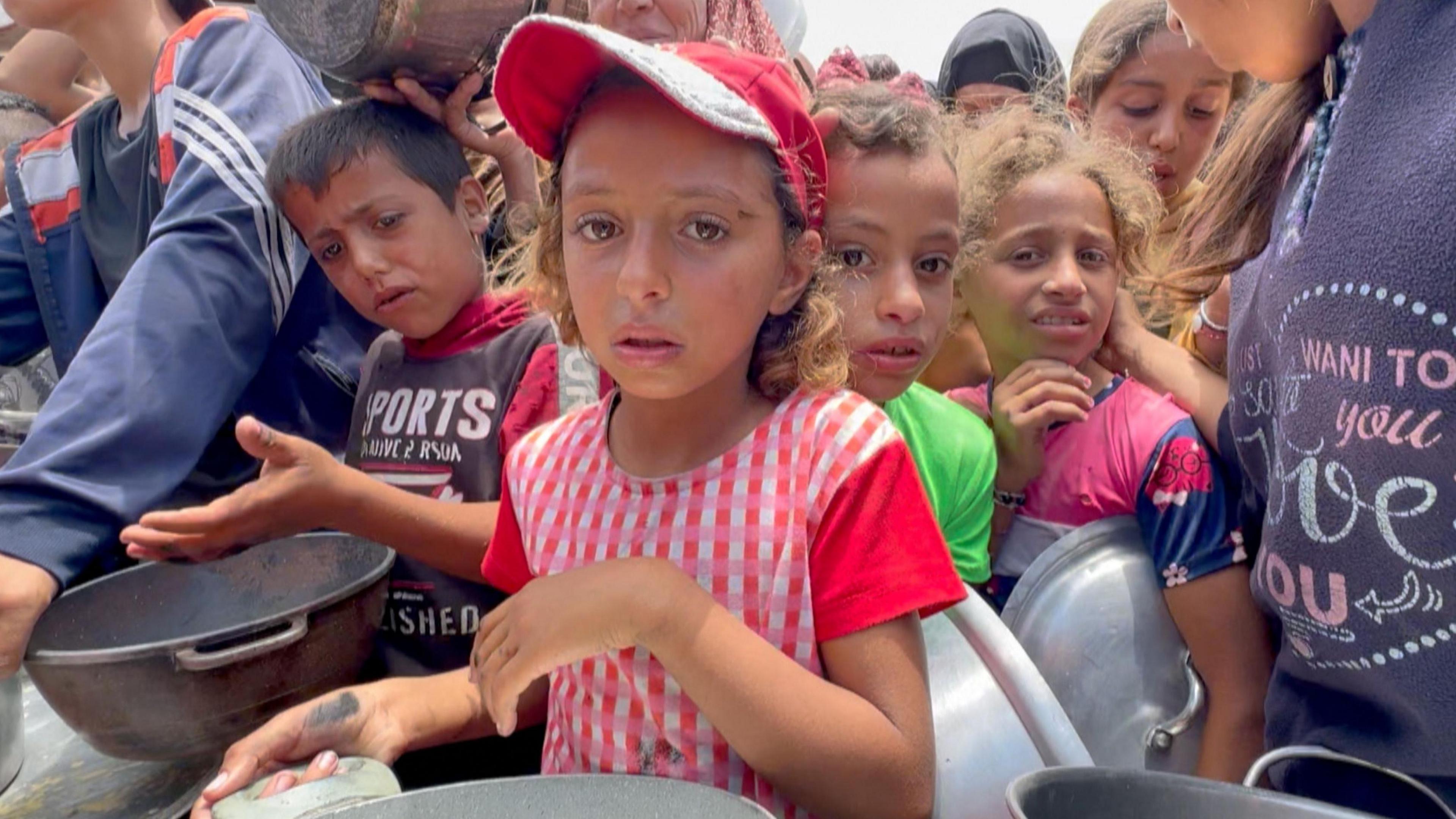
Aid agencies have spoken out about food shortages in Gaza
The agency has repeatedly insisted that Hamas steals aid, while the Israeli government says the war will continue until Hamas is destroyed and the Israeli hostages held in Gaza are released. According to Prime Minister Benjamin Netanyahu, 20 hostages seized by Hamas in the 7 October 2023 attacks are believed to be alive and up to 30 others dead.
Aid agencies, the United Nations and many foreign governments, including Britain, reject Cogat's comment that there is no food shortage. US President Donald Trump has also spoken of people "starving" in Gaza.
UN Secretary General Antonio Guterres described the amount of aid Israel has allowed into Gaza as "a teaspoon". He said Palestinians were "enduring what may be the cruellest phase of this cruel conflict" with restricted supplies of fuel, shelter, cooking gas and water purification supplies.
According to the UN, 80% of Gaza is now either designated as an Israeli militarised zone or a place where people have been ordered to leave.
The denials, the expressions of concern, the condemnations and the moments which seemed like turning points have come and gone throughout this war. The sole constant is the suffering of Gaza's 2.1 million people, like Najwa and her daughter Siwar.
"One does not think about the future or the past," Najwa says.
There is only the present moment and how to survive it.
With additional reporting by Malak Hassouneh, Alice Doyard and Nik Millard.
Related topics
- Published23 May
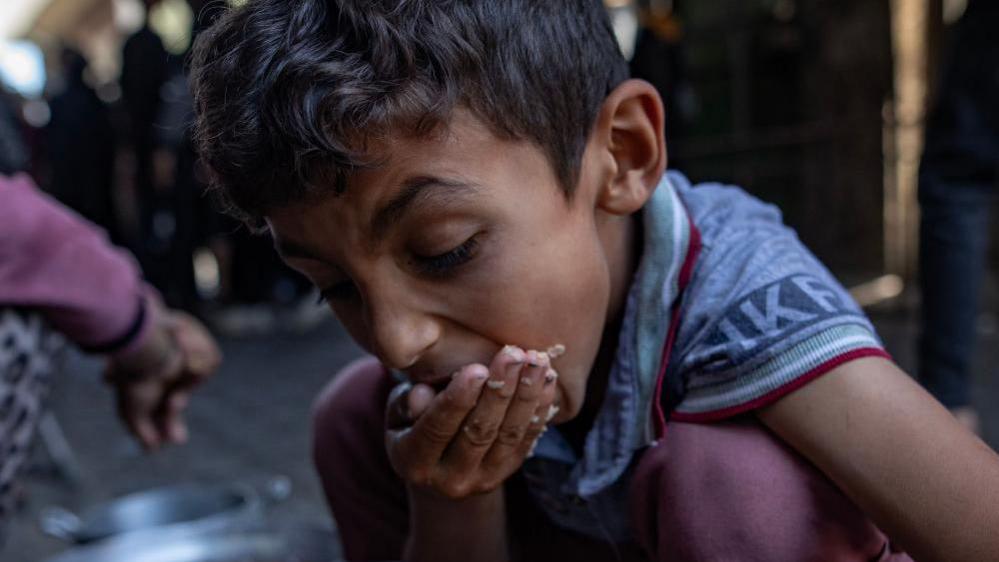
- Published24 May
